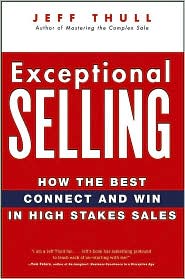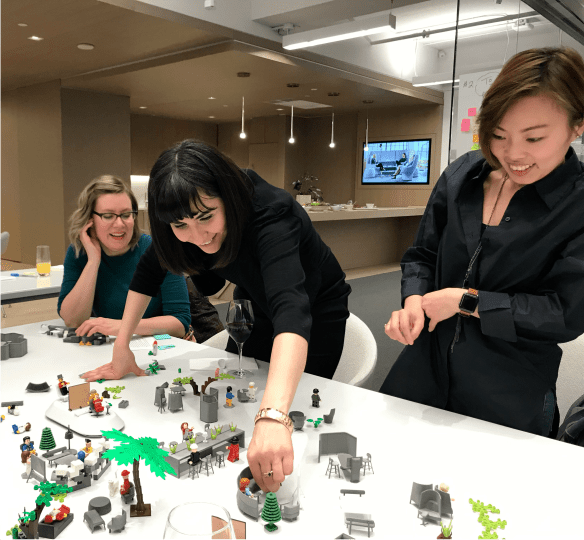 The Jeff Thull book, Exceptional Selling, effectively lays out selling language and strategy for complex sales – just the types of conversations needed in design and building marketing. Thull draws from the same philosophy that inform S.P.I.N. selling and the Sandler System – namely, the idea of diving deep into problems/pain and creating solutions that bring specific value. In addition he teaches the idea of playing against typical sales type – much like the idea of Lt. Columbo’s strategy of not showing up as the expected typical police detective. His observations about the roles of Parent, Child, and Adult – plus another analogy regarding Parent/Professor/Policeman and their relationships with Child/Student/Criminal – were especially helpful tools for analyzing the moments that strain our relationships with both customers and dealers.
The Jeff Thull book, Exceptional Selling, effectively lays out selling language and strategy for complex sales – just the types of conversations needed in design and building marketing. Thull draws from the same philosophy that inform S.P.I.N. selling and the Sandler System – namely, the idea of diving deep into problems/pain and creating solutions that bring specific value. In addition he teaches the idea of playing against typical sales type – much like the idea of Lt. Columbo’s strategy of not showing up as the expected typical police detective. His observations about the roles of Parent, Child, and Adult – plus another analogy regarding Parent/Professor/Policeman and their relationships with Child/Student/Criminal – were especially helpful tools for analyzing the moments that strain our relationships with both customers and dealers.
Excellent as Thull is, I would not necessarily make this assigned reading to entire sales teams without first understanding an organization’s own curriculum. Mr. Thull is reasonably restrained regarding unique selling systems and jargon, yet he is specifically teaching his registered “Diagnostic Selling” system of Discover, Diagnose, Design and Deliver.
“Exceptional Selling” is accessible, but is not light conceptual reading like “Who Moved my Cheese?” or “Blink.” Because it is more specific in its prescription, it could make someone assigned to another training program wonder, “What? Another system to learn?”
Greg











